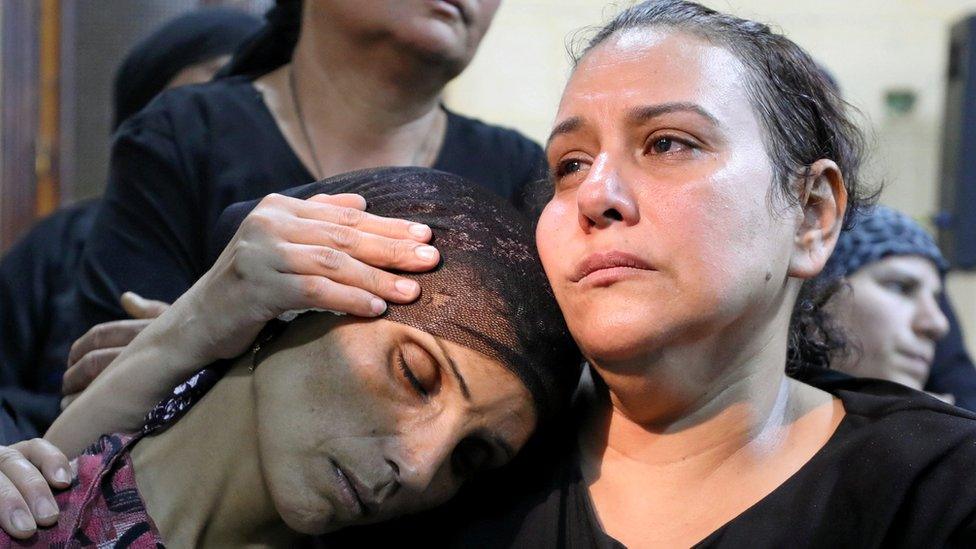Coptic monks charged with bishop's murder in Egypt
- Published
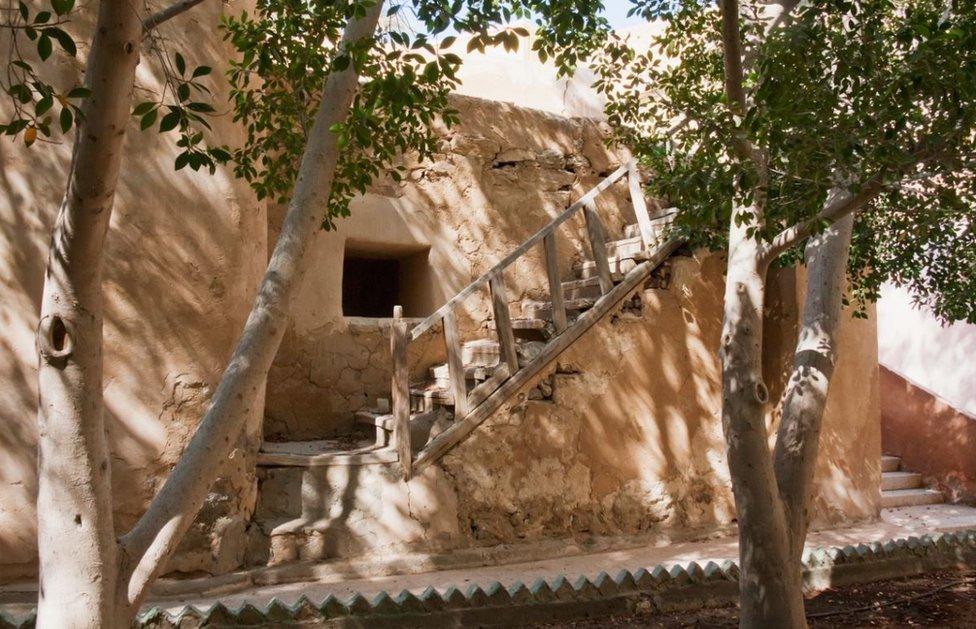
A bishop was found dead in July at the Monastery Of Saint Macarius The Great
Two Coptic Christian monks have been charged with murder in Egypt, after the head of their desert monastery was found dead in a pool of blood.
The body of Bishop Epiphanius was discovered on 29 July at Saint Macarius Monastery, in Egypt's Western Desert.
The monks, Wael Saad and Remon Rasmi Mansour, are accused of killing the cleric because they had "differences".
The case has shocked Egypt's Coptic Church, the largest Christian community in the Middle East.
Wael al-Saad confessed to bludgeoning the bishop over the head with a 90cm (35in) steel pipe while his associate stood guard, according to the Egyptian attorney general's office.
He was expelled from the church after the murder.
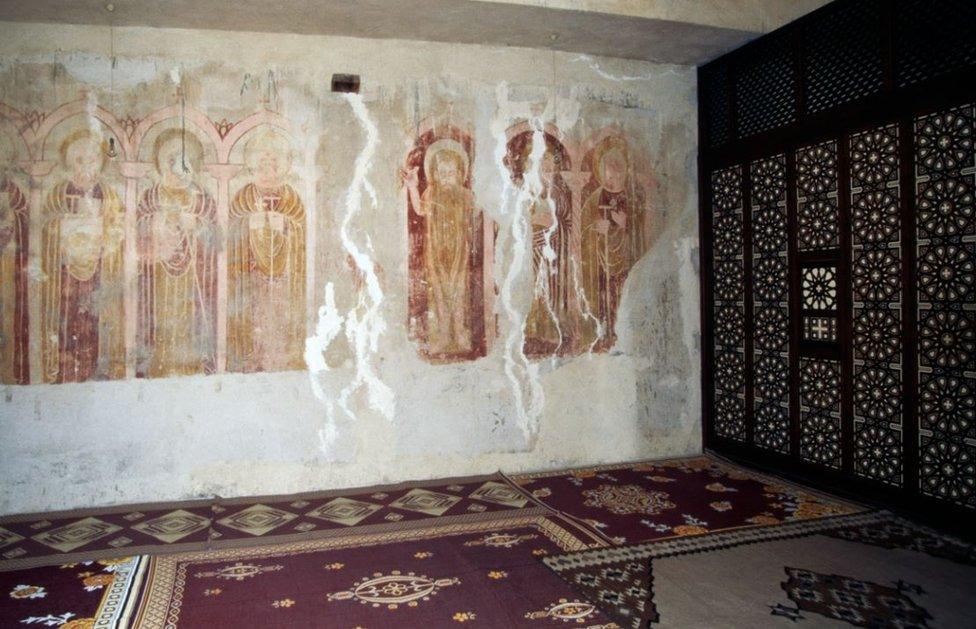
The monks are accused of killing their abbot while he was on his way to prayers
Egyptian prosecutors said the monk had had tensions with his superiors, and had been investigated for breaching monastic traditions.
Both monks will stand trial, but no date has yet been set.
The Coptic Church has unveiled strict new measures in the wake of the bloody incident.
No new monks are to be accepted for a year, and clergy are forbidden to use social media. Monks are also banned from leaving monasteries without permission.
Who are the Coptic Christians?
The Coptic Orthodox Church is the main Christian church in Egypt. While most Copts live there, the church has about a million members outside the country.
Copts believe that their faith dates back to about AD50, when the Apostle Mark is said to have visited Egypt. The head of the church is called the Pope, and is considered to be the successor of Saint Mark.
Coptic Christians are a significant minority in Egypt
The Coptic Church separated from other Christian denominations at the Council of Chalcedon in 451, in a dispute over the human and divine nature of Jesus Christ.
The current Coptic Pope, Tawadros II, observed his own social media ban this month by closing his official Facebook page.
Related topics
- Published16 February 2015
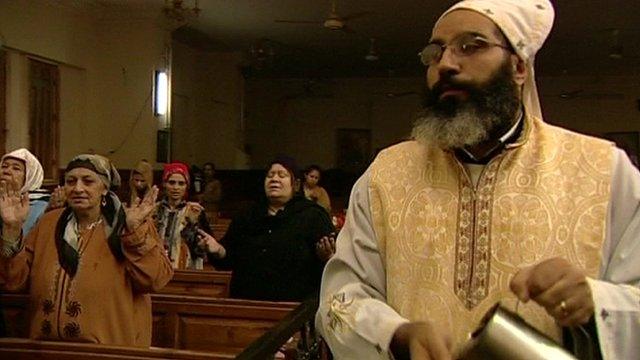
- Published11 August 2018
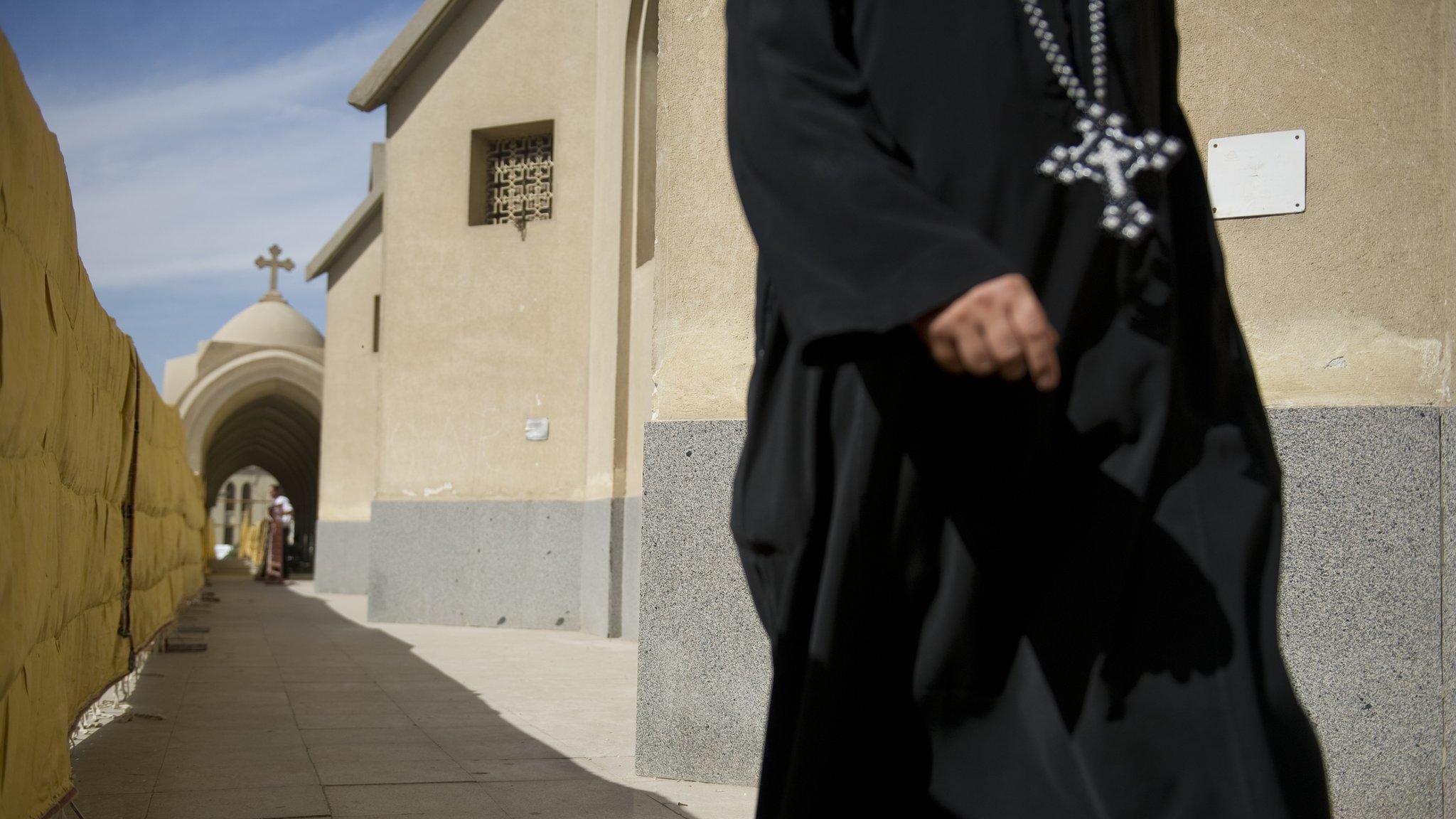
- Published13 October 2017
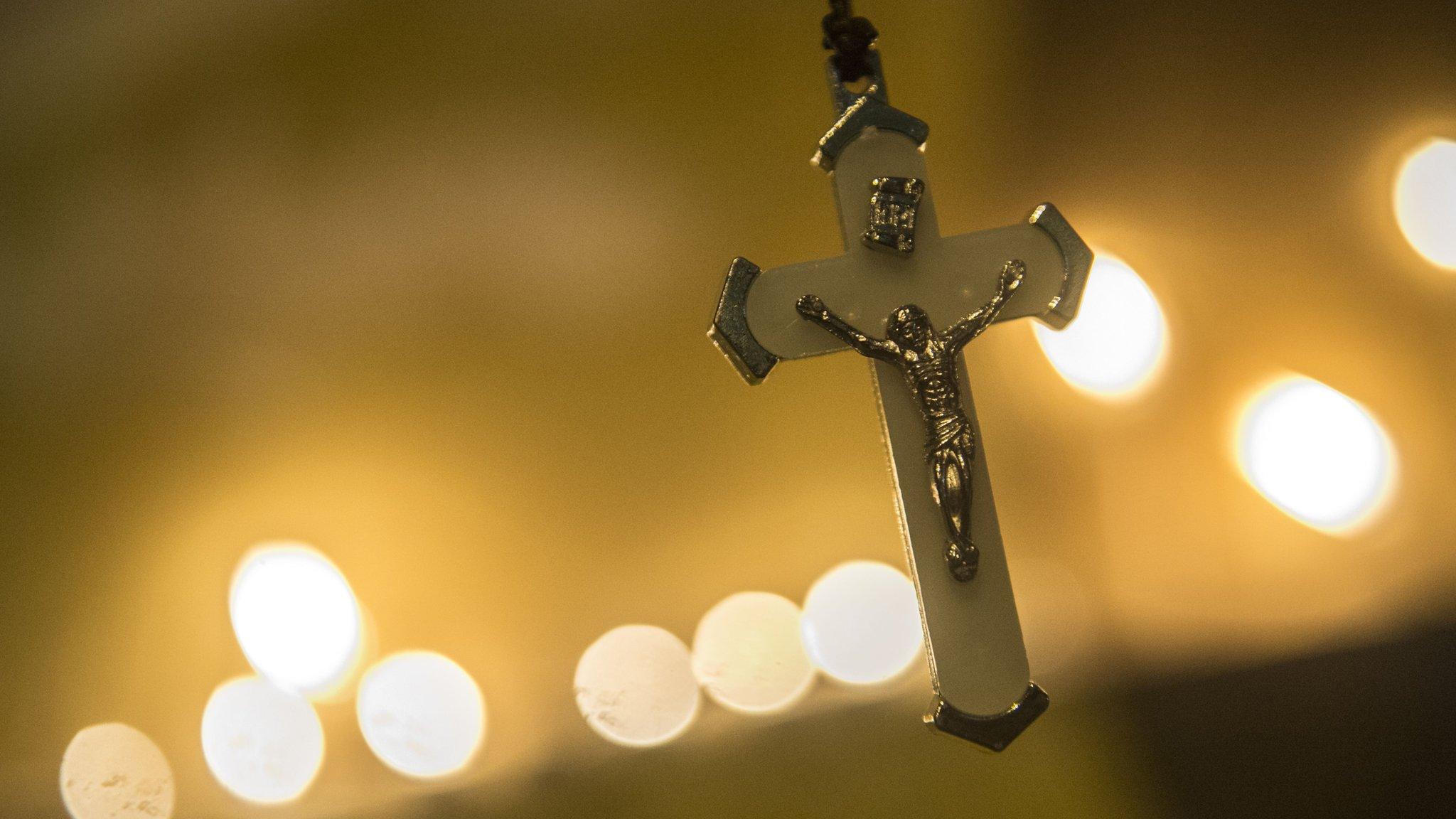
- Published17 November 2017
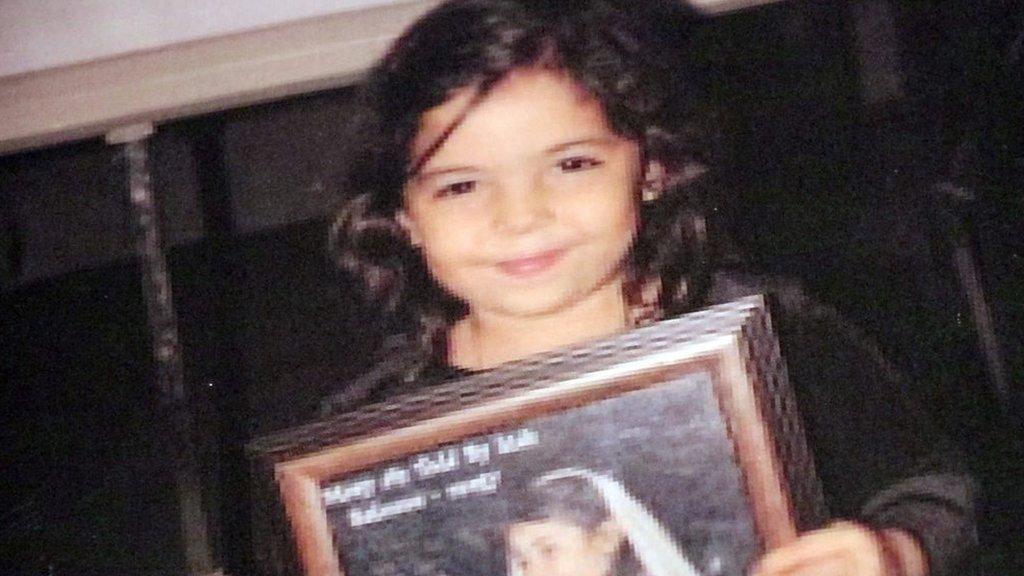
- Published26 May 2017
